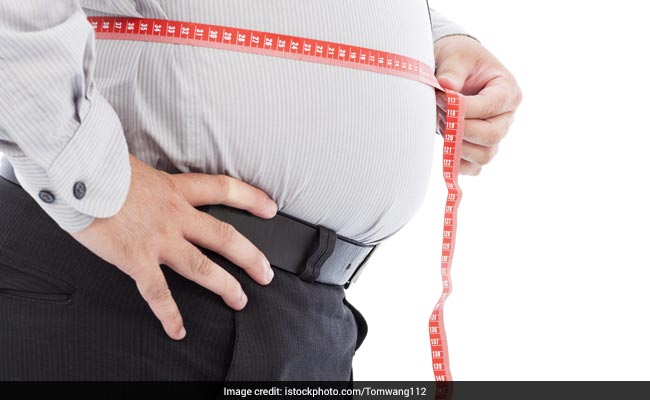The truth about fat and bloating and their causes.
The truth about fat and bloating and their causes.
Blog Article
Understanding the Distinction In Between Bloating and Fat: a Crucial Guide for Digestive Wellness
Recognizing the difference between bloating and excess body fat is crucial for any individual worried with gastrointestinal wellness. While bloating presents as a temporary and commonly uncomfortable condition, commonly linked to nutritional behaviors or gastrointestinal disruptions, body fat stands for an extra permanent modification in one's figure.
Specifying Bloating and Fat
Bloating and fat are 2 unique physical phenomena that can considerably affect an individual's comfort and body picture. Bloating is normally a short-term incident and can vary throughout the day, typically fixing with lifestyle adjustments or clinical interventions.
In comparison, body fat is a much more permanent and stable part of human physiology, largely functioning as an energy reserve and playing essential roles in hormone law and insulation. Body fat is identified into two kinds: subcutaneous fat, which exists just beneath the skin, and natural fat, which surrounds internal body organs. While excess body fat can bring about health and wellness problems, it is important for total physical functions.

Reasons of Bloating

In addition, food intolerances, such as lactose or gluten intolerance, can lead to bloating when the body has a hard time to process specific materials - difference between bloating and fat. Eating also rapidly or eating carbonated beverages can also worsen the concern, as these practices present excess air right into the gastrointestinal system
Lifestyle elements, consisting of stress and absence of physical task, can even more add to bloating by influencing gut motility. Particular clinical conditions, such as cranky digestive tract disorder (IBS) or stomach obstruction, may additionally bring about chronic bloating. Comprehending these reasons is crucial for effectively managing and easing bloating, permitting people to make informed dietary and way of life options that sustain their digestive system wellness.
Symptoms of Bloating vs. Fat
Identifying between the symptoms of bloating and excess fat is crucial for recognizing one's body and attending to discomfort properly. Bloating normally offers as a feeling of fullness or pressure in the abdomen, commonly gone along with like it by visible distension.
While it may add to a sense of heaviness, it generally does not produce the severe pain associated with bloating. Instead, excess fat often tends to accumulate slowly, leading to a change in body shape and dimension over time.

Recognizing these differences is essential. While bloating is frequently momentary and connected to nutritional factors or digestion concerns, excess fat indicates an extra chronic problem requiring way of living adjustments. Recognizing these symptoms empowers people to look for appropriate options customized look at these guys to their specific problems relating to digestive system wellness and body make-up.
Taking Care Of Bloating
Efficient administration of bloating calls for a multifaceted approach that deals with both nutritional choices and way of living practices. Initially, it is necessary to recognize and eliminate particular foods that might activate bloating, such as those high in fiber, gluten, lactose, or specific fermentable carbohydrates (FODMAPs) Maintaining a food diary can help determine these triggers and overview changes.
Including smaller sized, much more constant meals instead than huge ones can also decrease bloating, as it alleviates the digestion procedure (fat and bloating). Remaining well-hydrated is important, as enough liquid consumption aids food digestion and assists avoid irregular bowel movements, which can add to bloating
Additionally, participating in regular exercise promotes stomach motility and reduces bloating. Basic exercises, such as walking or yoga, can effectively ease pain. Mindful eating methods, such as consuming gradually and eating food thoroughly, might even more enhance digestion and limitation air swallowing.
When to Look For Assistance
Identifying when to look for medical assistance for bloating is critical, as consistent or severe signs might indicate a hidden health problem. If bloating is come with by additional concerning signs and symptoms such as significant stomach discomfort, inexplicable fat burning, rectal bleeding, or constant nausea or vomiting and vomiting, it is essential to seek advice from a healthcare expert. These indications might recommend problems such as irritable bowel syndrome, intestinal blockage, or perhaps more severe concerns like cancer cells.
Additionally, if bloating continues despite dietary changes or over the counter treatments, it necessitates more investigation. Individuals with a history of food poisonings must be especially attentive, as their threat for difficulties might be greater. In addition, if bloating occurs following the consumption of specific foods, it may indicate food intolerances or allergies that require nutritional modifications or screening.
Final Thought
In summary, comparing bloating and excess body fat is important for digestion health and wellness and general wellness. Bloating, a short-term condition commonly connected to dietary variables and digestive issues, contrasts greatly with the steady buildup of body fat. Recognizing his comment is here the symptoms and underlying sources of each can promote suitable management methods. People experiencing consistent or serious symptoms need to look for expert guidance to resolve possible health and wellness concerns properly. Recognizing these distinctions is important for informed decision-making pertaining to health and wellness and lifestyle.
Report this page